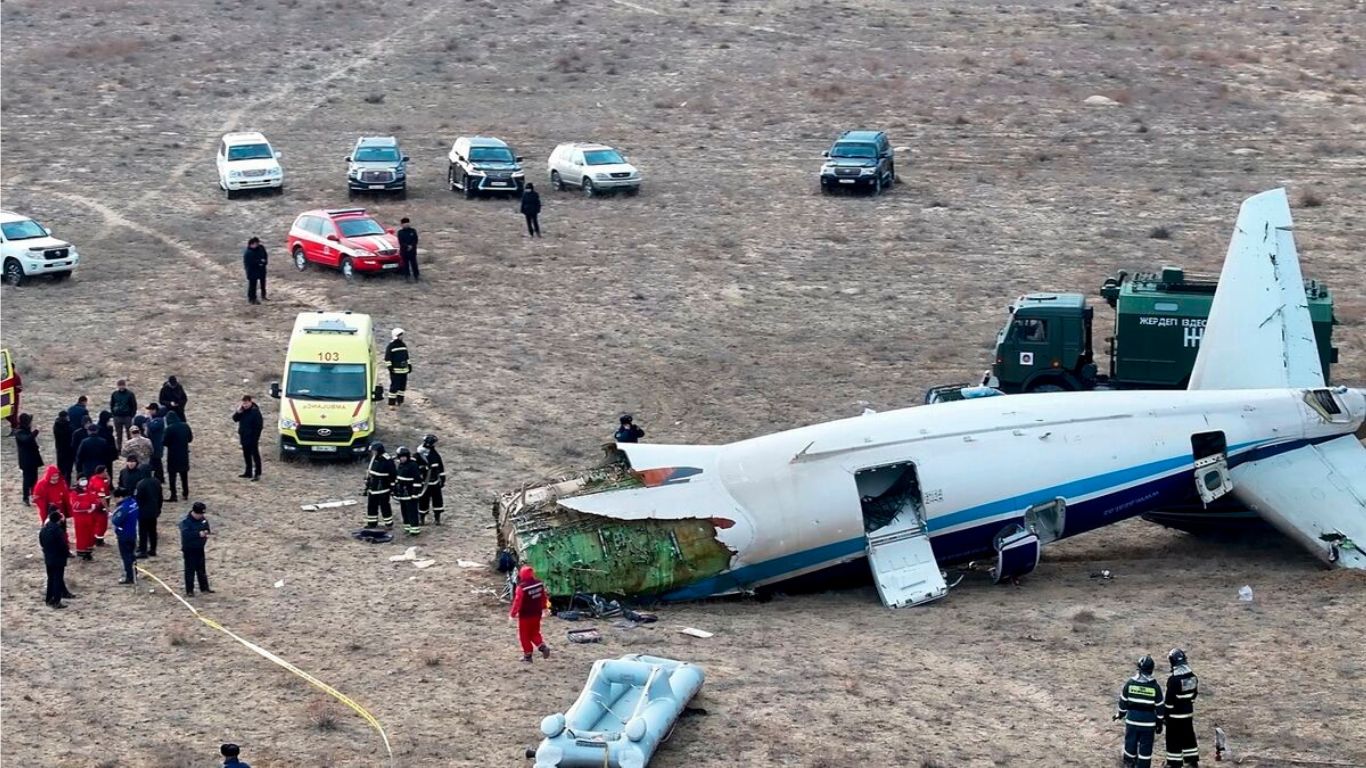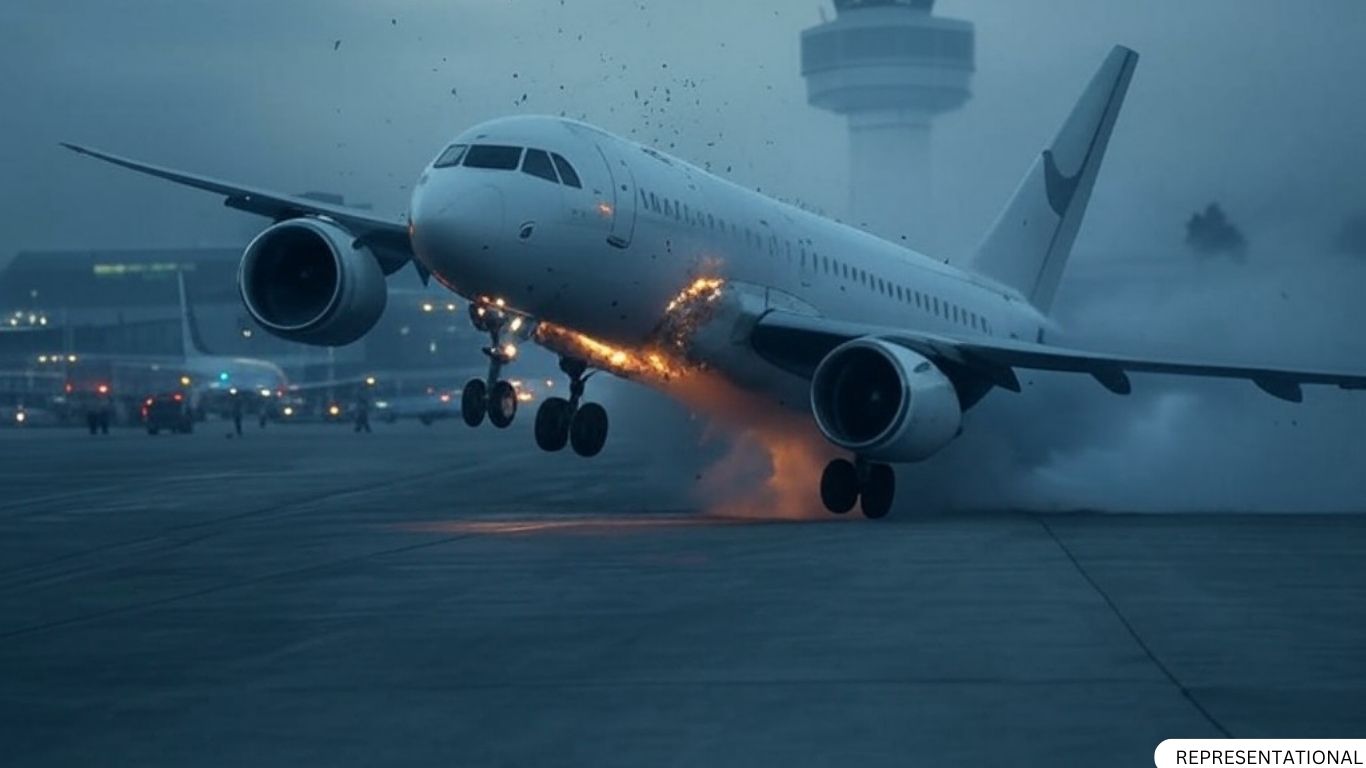An Azerbaijan plane crash near Grozny, Russia, has sparked speculation that the aircraft may have been brought down by weapons fire. Both Azerbaijani officials and U.S. sources have hinted at external interference, potentially from Russian air defense systems, while investigators work to uncover the truth.
Crash Details
The ill-fated flight was en route from Baku, Azerbaijan, to Grozny, the Chechen capital, on Wednesday. Amid heavy fog and two failed landing attempts, the plane diverted toward Kazakhstan but crashed during the process. The tragedy claimed the lives of 38 people, while 29 others were injured, including crew members.
Witnesses and survivors described loud noises, suggesting external impacts before the crash.
- Flight Attendant Aydan Rahimli: Reported hearing two distinct bangs, one of which caused oxygen masks to deploy.
- Survivor Zulfugar Asadov: Suffered injuries that he described as resembling an external weapon strike.
- Passenger Jerova Salihat: Mentioned an explosion near her leg.
These accounts have fueled theories that the plane may have been struck by projectiles.
Claims of Weapons Fire
Azerbaijani Minister Rashan Nabiyev pointed to preliminary conclusions suggesting an external impact, citing expert analysis and survivor testimony. Meanwhile, U.S. National Security Spokesman John Kirby stated that there are early indications the plane could have been downed by Russian air defenses, though he declined to elaborate further.
Russian Air Defense Allegations
Aviation experts and Azerbaijani sources have drawn attention to the holes visible in the plane’s tail section, indicating the possibility of weapons fire. This theory is bolstered by reports of Ukrainian drone activity targeting Grozny at the time of the crash. Russia’s civil aviation authority confirmed drone attacks prompted a temporary closure of airspace in the region.
However, Kremlin spokesperson Dmitry Peskov refrained from addressing these claims, emphasizing the need to await the official investigation’s findings.
Impact on Aviation and Tensions
The crash has already led to significant disruptions in air travel:
- Azerbaijan Airlines: Suspended flights to numerous Russian cities.
- Kazakhstan’s Qazaq Air: Halted flights to Yekaterinburg for a month.
- FlyDubai and El Al Airlines: Suspended select routes citing safety concerns in Russian airspace.
This incident follows a similar pattern to previous aviation disasters linked to military conflict, such as the downing of Malaysia Airlines Flight MH17 in 2014. That incident also involved a Russian missile and resulted in international outcry.
Broader Implications
If confirmed that Russian air defenses were responsible, this crash could escalate tensions in an already volatile region. It underscores the risks posed to civilian aviation amid active conflict zones. The investigation continues, with Azerbaijani officials collaborating with Russian authorities to uncover the truth.
As the probe unfolds, the world watches closely to determine whether this tragedy stems from technical failure or a more alarming cause. In the meantime, airlines and passengers are adjusting to the heightened risks associated with flights in and around conflict-prone areas.















